- Home
- JoAnn Ross
A Woman's Heart Page 6
A Woman's Heart Read online
Page 6
He made his way down the stairs; the dog, appearing a bit more emboldened, stayed close on his heels, nails clicking on the wood.
The kitchen could have appeared on the cover of some country-living magazine: a bright blue-plaid oilcloth covered the round table, and the unmatched wooden chairs surrounding the table had been painted school-bus yellow. The window had been left open to admit moist air that carried the fragrance of freshly mowed grass and the distant scent of the sea; white lace curtains swayed in the early-morning breeze.
He found an old-fashioned aluminum percolator sitting on the stove. The note taped to it informed him that the family was at mass and would be home by ten o’clock at the latest.
“I’ll be making breakfast,” the neat convent-schoolgirl script assured him. “But if you wake before I return, there’s porridge on the stove, a tin of coffee on the counter, and you’re welcome to anything you find in the icebox.” It was formally signed, Nora Fitzpatrick.
Quinn glanced up at the round-faced wooden clock on the wall. If he had to wait another forty-five minutes for coffee, he just might die, after all.
“Looks as if we’re on our own, sport.” The oatmeal, kept warm in a double boiler and too reminiscent of youthful farm days, held little appeal.
When he opened the refrigerator door, the dog grinned. “How about some bacon?” Quinn took the white-wrapped bundle from the meat compartment and a blue bowl of speckled eggs from a wire shelf. “Do you prefer your eggs scrambled or fried?”
The dog barked eagerly.
“Yeah, me, too,” Quinn said. “Fried it is.”
The bacon was thick and spicy, more like ham than the bacon Quinn was used to back home. Both he and the dog agreed it was delicious. The oversize eggs might have ended up a little crispy at the edges, but neither of them was in a mood to complain. Quinn ate three, enjoying the sweet taste of the butter he’d fried them in; the dog inhaled two.
The only failure was the coffee. It was as thick as the black peat bogs Quinn had passed on the way to Castlelough.
“Peat would probably taste a damn sight better,” he told the dog, whose morose expression seemed to be offering canine sympathy.
Although he usually drank his coffee black, he tried cutting it with the rich cream he found in the refrigerator, then tossed in a heaping spoonful of sugar. He took another tentative sip, decided it wasn’t going to get any better, but in desperate need of caffeine, downed it in long swallows, anyway, like bitter-tasting medicine.
The caffeine clicked in almost instantly, putting a slightly sharper edge on the fog surrounding his brain. Quinn decided some fresh air might do the rest.
“So how about giving me a tour?” he suggested to the dog after he’d washed and dried the dishes and put them away.
Filming didn’t begin for another two days, and since he’d left the rented Mercedes outside the pub, Quinn figured he was stuck here until the family returned and someone could drive him into Castlelough to retrieve it. Then again, he reconsidered, from what he remembered of last night’s drive, it wasn’t that far into town. He could probably walk there. Later, after he felt more human.
When he opened the door that was split in two Dutch-style, the dog raced out ahead of him.
The house he’d only glanced at last night was a basic two-story farmhouse with a rounded yellow thatched roof. It was in need of a fresh whitewash, but the baskets of crimson flowers hanging on either side of the blue door added cheerful splashes of color. Several red hens pecked in the gravel in front of the house, green herbs jostled for space in a small garden, the white sheets on the clothesline fluttered in the morning breeze, and a rutted dirt driveway led to a wooden gate.
Last night’s rain had stopped, leaving the sky clear save for the wisps of blue smoke coming from the chimney and a few clouds that meandered overhead looking like shaggy lambs. The land folded out in green fields where herds of white-faced cows and flocks of sheep grazed. The heads and shoulders of the sheep had been marked for identification with various Day-Glo colors, and the blue, orange, chartreuse and scarlet gave the shaggy animals the look of punk rockers.
Since the nearby barn brought back more memories of those harsh foster-care days he was determined to forget, Quinn went back into the house to unpack.
Nora stood outside the gray stone church, surprised to discover that by allowing one of the Americans into her house she’d become a celebrity of sorts herself. Everyone, it seemed, wanted to know what the famous Mr. Quinn Gallagher was like.
“We didn’t have much opportunity to talk,” she replied evasively to Father O’Malley’s inquiry regarding her boarder. The priest was a young man with a tall, asparagus-stalk-thin body. The first time Nora had watched the father cutting peat, she’d realized the cleric was far more vigorous than his bookish ascetic appearance suggested. “He arrived late.”
“I heard he spent the evening at The Rose. Do you think he has a drinking problem?” the priest asked with a frown.
Since it was obvious that the men at the pub had been telling tales, Nora decided there was little point in trying to avoid the question. “I worried about that. But Mr. Gallagher assures me it was an aberration. And he was, after all, with Brady.”
“That does explain a great deal,” the priest allowed. “However, if he gives you any trouble, Nora, I could always find room for him at the rectory.”
“Thank you, Father. That’s very kind. But I’m sure he won’t be any problem.” With that lie stinging her tongue, she smiled and drifted away, hoping she could gather up the family and get back to the farm before the troublesome American awoke and demanded his breakfast.
Yesterday’s storm had passed, leaving behind a brilliant blue sky that seemed like a benediction. As she drove back to the farm, Nora decided to take the glorious day as a sign that her next encounter with her boarder would go more smoothly.
Quinn finished putting away his clothes in the old oak chest and had returned to the kitchen to take another stab at coffee making when he heard the crunch of car tires on the gravel outside.
Moments later the door burst open and two children—a boy and a girl who appeared to be about the same age—ran into the room, followed by a pair of teenagers, then Fionna and Brady. Bringing up the rear and backlit by a sun that turned her hair to flame, was Nora Fitzpatrick.
She was wearing a high-necked heather-hued dress that stopped just a bit above the knee and a well-worn blazer the color of rain. If the skirt had been a few inches longer, she could have been a nun. When she shrugged out of the blazer to hang it on a wooden hook beside the door, Quinn discovered that the widow Fitzpatrick’s body, which last night had been hidden beneath a bulky sweater, was far more curvaceous than he’d first thought. And the softly clinging dress was anything but nunlike.
A face of a convent girl and a body built for sin. It was, he was discovering, a perilous combination. The woman wasn’t merely trouble. She was pure TNT.
And Quinn felt as if he’d just been handed a lit fuse.
She greeted him with a hesitant smile. “So you’re up,” she said. Her scent, which made him think of making love in a meadow of wildflowers during a soft summer rain, had entered the kitchen with her.
Deliberately, to prove to himself—and to her—that he could, Quinn aimed cool dark eyes at her exquisite face. “I woke up about an hour ago.”
“I’m sorry I wasn’t here to fix you breakfast.”
When she didn’t look away from what other women had assured him was a quelling stare, Quinn decided she might just be tougher than she looked.
“The dog and I managed.”
“The dog?” She glanced down at the beast, who was lying beneath the table, head on its forepaws, looking adoringly up at Quinn. “Isn’t that amazing.” She tilted her head and studied him. “You’re obviously a miracle worker.”
“Maeve’s afraid of everyone but my aunt Kate, my mam and me,” the younger boy volunteered.
He had a shock of dark hair, b
lue-black eyes and a scattering of freckles across his face. But even with the difference in coloring, Quinn had no difficulty in recognizing him to be the grandson Brady had boasted about.
“Her name is Maeve?” Quinn asked.
“After the warrior queen of Connacht from the old stories. It was Mam’s idea. She thought being named after such a powerful person might help give Maeve courage.”
“Sounds reasonable to me,” Quinn said with a sideways glance at Nora. Her face curtained by her hair, she began taking cups down from the open shelf. “She seems like a great dog.”
Admittedly, he might have been a bit of a bastard when it came to Nora. But Quinn didn’t have it in him to be cold to a child. Especially one forced to grow up without a father. Not that having a father was any real guarantee of happiness.
“I assume you’re Rory.”
“I’m sorry. I should have introduced you to everyone,” Nora said before her son could answer. “Rory, this is Mr. Gallagher.” She went on to introduce the other children.
“I have all your books, Mr. Gallagher,” offered the tall gangly teenage boy with the serious eyes she’d introduced as her brother John.
“Call me Quinn.” Being called Mr. Gallagher reminded him uncomfortably of his father. “And thanks for the support. Your father said your favorite is The Night of the Banshee.”
“That was my favorite. But I think I like The Lady of the Lake best now. And I especially like that you set it right here in Castlelough.”
“Perhaps you’d like to come watch some filming.”
“Could I? Really?” It was such a small thing. And offered without thought. But it obviously meant a great deal to John Joyce.
“How about me?” This from the younger girl with the bright nest of Orphan Annie curls. Celia, Quinn remembered. Which would make her the child Brady’s wife had died giving birth to. “May I come, as well?”
Nora lit the stove, then shot a stern warning look over her shoulder as she filled a kettle from the tap. “That’s enough, now,” she said. “I won’t be having you all pestering Mr. Gallagher. He’s here to work on his movie and is to be left alone.”
“I don’t mind,” Quinn lied. Although he was not usually diplomatic, he could be when necessary.
Nora gave him a look that said she didn’t believe him for a moment. “You’re a paying guest. Don’t you have a right not to be pestered to death?” Her voice lilted with the soft cadence of the Irish west. “Would you be wanting some tea?”
“Of course he’ll be wanting tea,” Brady said, entering into the conversation. He looked hale and hearty, revealing not an iota of hangover. Yet further proof, Quinn considered grimly, that life wasn’t fair.
“Nora makes the best tea in the county,” Brady assured Quinn. “Stout enough to trot a mouse across, it is.”
“Now there’s a thought,” Quinn murmured, watching as his words caused the corners of her mouth to curl in a faint smile. “Tea sounds good. I tried making coffee, but I couldn’t get the knack of boiling it.”
“Didn’t I tell you we should have bought one of those Mr. Coffee machines, Nora, darling?” Brady said.
“Really, tea’s fine,” Quinn insisted.
Everyone but Nora was watching him again, as if he were some sort of unique animal. A unicorn, perhaps. Or the creature in the lake.
“I knew a Donovan Gallagher when I was a girl,” Fionna said. “He had family in Donegal. Would you be knowing of them?”
“No.”
She tilted her head and studied him. “You have the look of the boy I knew. Perhaps while you’re in Ireland, you might be wanting to take a visit to Donegal and—”
“No.” Realizing he’d snapped at her, Quinn softened his expression. And his tone. “I’m afraid I’m going to be very busy working on the film. I doubt I’ll have time for sight-seeing.”
“Ah, isn’t that a shame, now?” Fionna’s direct gaze told him that she suspected there might be more to his refusal than a scheduling problem. “To come all this way from America and not see your family…perhaps next time,” she suggested.
“Next time,” he agreed. Wanting to move the conversation away from himself, Quinn turned back to Rory. “So, what grade are you in?”
“Oh, I’m in first form.”
Quinn remembered attending three different schools in three different states during his first-grade year. He also remembered the broken arm his father had given him when he hadn’t fetched the bottle of Coors fast enough that September they’d lived in Boulder. “Do you like school?”
“Aye.” The small freckled forehead creased. “But I’m not so sure about next year.”
“Why not?”
“Because when you’re in second form, everything changes. You have to learn cursive, and start learning about the lives of the saints, and you become culp…culp…”
“He’s trying to say culpable,” Celia broke in with a toss of her head that suggested feminine superiority.
“Culpable?”
“You get reason,” Celia explained. “It means you become responsible. You can’t say you didn’t know any better because by the time you’re in second form, you’re supposed to know the difference between good and evil. So all your sins go against your permanent record.”
“I can see where that might be a worry.” Quinn decided he didn’t ever want to get a look at his permanent record. “But I can’t believe you could have all that many sins,” he assured Rory.
“Everything’s a bloody sin.” Mary spoke up for the first time, her dark kohl-lined eyes flashing. Seeing through the makeup the girl had spread like Spackle on her face, Quinn realized she was going to grow up to be a real beauty. “Everything pleasurable, that is.”
“And what kind of words are those from a girl who’s decided to become a nun?” Fionna demanded.
“I’m not going to be a nun.”
“Yesterday you said you had a vocation,” Rory reminded her.
“That was yesterday. Can’t a girl change her mind?”
“Mary wanted to become a nun because Jack asked Sharon Fitzgerald to the May Dance,” Rory informed Quinn.
“Sounds like Jack’s loss.” Quinn’s complimentary words caused color to flood into the teenage girl’s pale face.
“That’s what I told her,” Fionna said.
“Sharon sleeps around,” Celia volunteered. “Which is why Jack asked her to the dance, instead of our Mary.”
That was all it took to make the teenager burst into tears and run from the room.
“Don’t be minding the girl’s histrionics,” Fionna said matter-of-factly. “She’s at an age, don’t you know.”
“It’s difficult being a teenager,” Quinn agreed. Realizing he was wading once more into murky conversational waters, he was relieved when the kitchen door opened again and an ebony-haired woman accompanied by two children entered the room.
“Good morning, all.” While the greetings the others returned were cheery enough, Quinn thought he detected a sudden tension in the kitchen. Nora, especially, seemed to be studying the newcomer carefully.
“I’m Kate O’Sullivan.” She held out a friendly hand. Her flesh was pale, her grip strong, her smile warm. “And you’d be Quinn Gallagher. And these two are my daughter and my son. I enjoy your books. Even if they are marketed all wrong.”
“Oh?” Just what he needed. Another critic.
If she heard the faint warning note in Quinn’s voice, Kate ignored it. “You don’t write horror of course.”
“I don’t?”
“Surely you know you don’t? You write social commentary. In fact, your stories remind me, in many ways, of Jonathan Swift.”
“I’m flattered.”
“Why should you be when it’s the truth? It doesn’t take a degree in literature to understand that The Lady of the Lake is an allegory about prejudice, the overreach of science and the paranoia that can so easily run rampant in small isolated villages such as our own.”
Quinn l
aughed, liking her immediately. “The woman’s obviously a genius. So how would you like a job as my Irish publicity rep?”
“I think you’d be in trouble,” she countered. “Being that there’s many in these parts who wouldn’t buy a book just because I recommended it.”
“Aunt Kate’s a witch,” Rory explained.
“A druid witch,” Celia tacked on.
Quinn was amused by the faint challenge that rose in Kate O’Sullivan’s blue eyes at this revelation. “As it happens, I’ve been playing with the idea of writing a witch heroine,” he said mildly. “Perhaps you’ll make time to consult with me while I’m here.”
It was her turn to laugh. “And wouldn’t that start tongues wagging?” Her smile was warm, belying the stereotype of the wicked witch of fairy tales. “Of course I’ll consult with you, Mr. Gallagher, if only to make certain you get it right.”
“There you go again.” Nora smiled with affection at her sister-in-law as she placed a flowered teacup in front of Quinn. “Stirring things up again.”
“The gods gave us all unique talents, Nora. Unfortunately stirring things up seems to be what I seem to do best.” Kate gave a slight sigh, then pulled out a chair across the table from Quinn, picked up her little red-haired daughter Brigid and plunked her on her lap.
Unlike the gregarious Rory Fitzpatrick, Kate O’Sullivan’s son, standing almost behind his mother’s chair, reminded Quinn vaguely of Maeve.
“Hi.” Quinn held out his hand. “My name’s Quinn. What’s yours?”
The boy shot a quick wary look up at his mother.
“Answer the man, darling,” Kate coaxed gently.
“Jamie.” He stared down at the floor. “Jamie O’Sullivan.”
The surname, which he hadn’t paid all that much attention to when Kate O’Sullivan had introduced herself, rang a bell. It was a common enough name in Ireland certainly, but Quinn knew without a single doubt that the bad tempered, foulmouthed drunk in the pub was this little boy’s father. He also knew that the reason Jamie refused to shake his hand was not so much because he was shy. He was afraid.

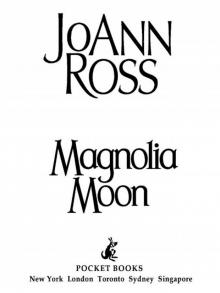 Magnolia Moon
Magnolia Moon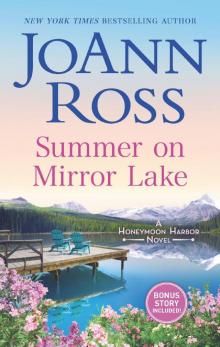 Summer on Mirror Lake
Summer on Mirror Lake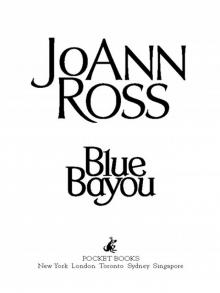 Blue Bayou
Blue Bayou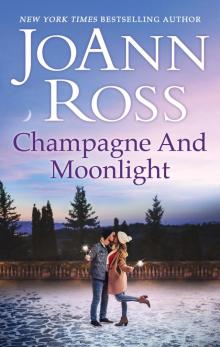 Champagne and Moonlight
Champagne and Moonlight No Regrets
No Regrets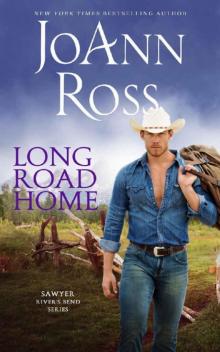 Long Road Home
Long Road Home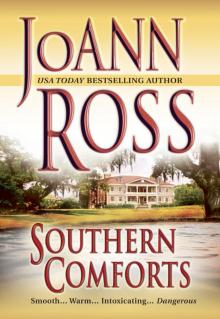 Southern Comforts
Southern Comforts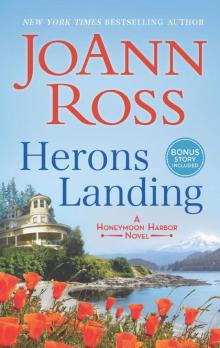 Herons Landing
Herons Landing Untamed
Untamed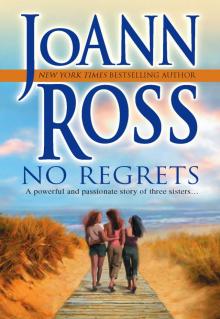 No Regrets (Mira Romance)
No Regrets (Mira Romance)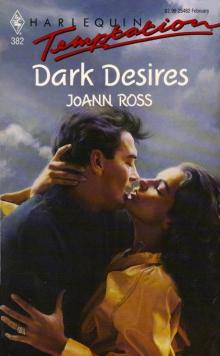 Dark Desires
Dark Desires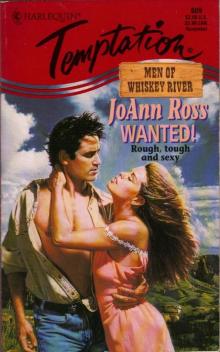 Wanted!
Wanted!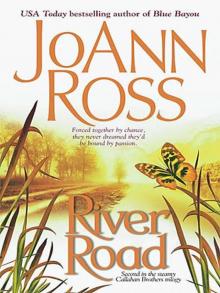 River Road
River Road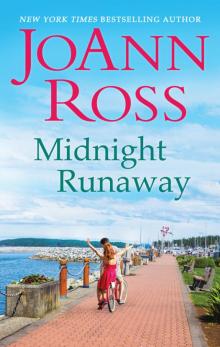 Midnight Runaway
Midnight Runaway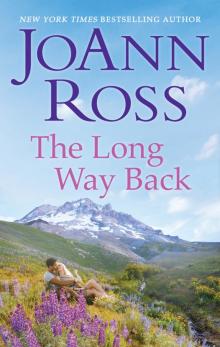 The Long Way Back
The Long Way Back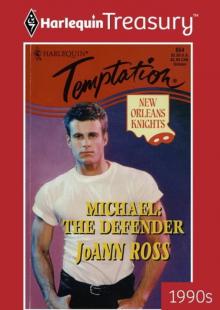 Michael: The Defender
Michael: The Defender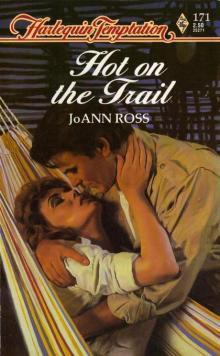 Hot on the Trail
Hot on the Trail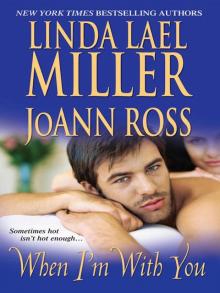 When I'm With You
When I'm With You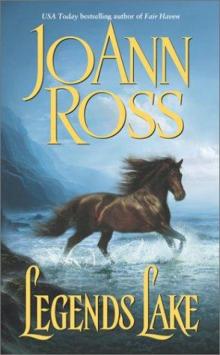 Legends Lake
Legends Lake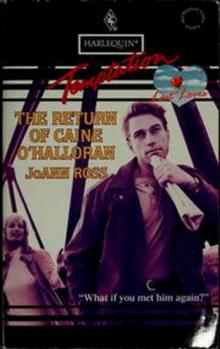 The Return of Caine O'Halloran
The Return of Caine O'Halloran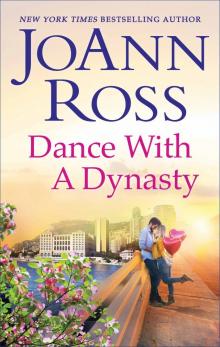 Dance with a Dynasty
Dance with a Dynasty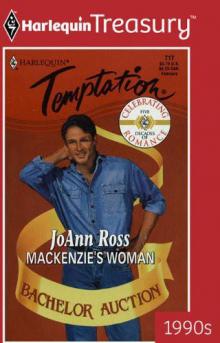 MacKenzie's Woman
MacKenzie's Woman Impulse
Impulse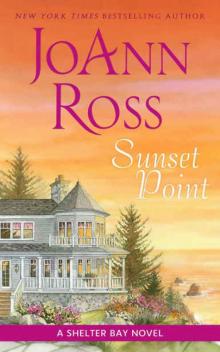 Sunset Point: A Shelter Bay Novel
Sunset Point: A Shelter Bay Novel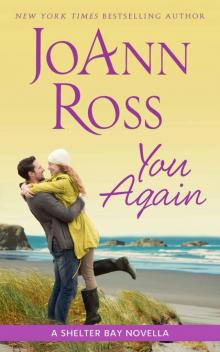 You Again: A Shelter Bay novella (Shelter Bay series Book 8)
You Again: A Shelter Bay novella (Shelter Bay series Book 8)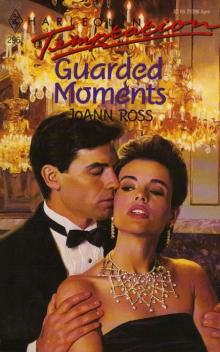 Guarded Moments
Guarded Moments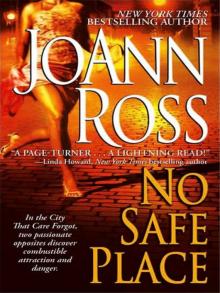 No Safe Place
No Safe Place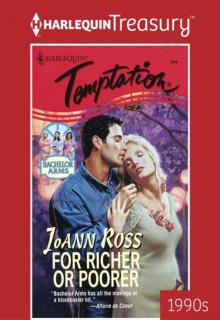 For Richer or Poorer
For Richer or Poorer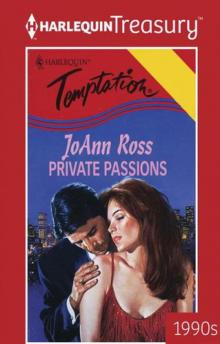 Private Passions
Private Passions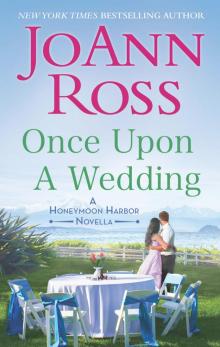 Once Upon a Wedding
Once Upon a Wedding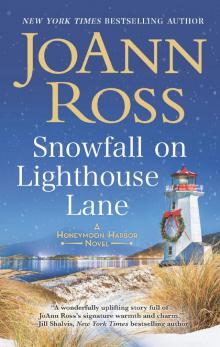 Snowfall on Lighthouse Lane
Snowfall on Lighthouse Lane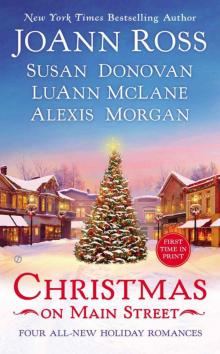 Christmas on Main Street
Christmas on Main Street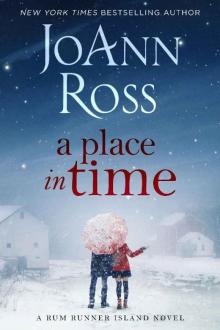 A Place in Time (Rum Runner Island Book 1)
A Place in Time (Rum Runner Island Book 1)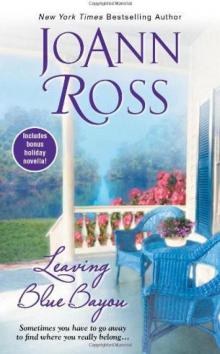 Leaving Blue Bayou
Leaving Blue Bayou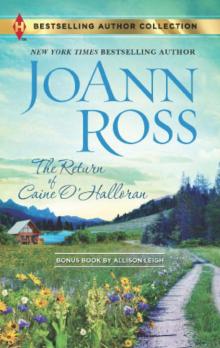 The Return of Caine O'Halloran: Hard Choices
The Return of Caine O'Halloran: Hard Choices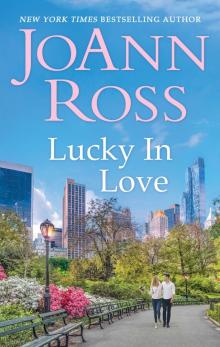 Lucky in Love
Lucky in Love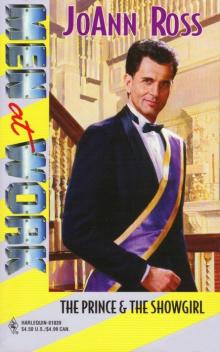 The Prince & The Showgirl
The Prince & The Showgirl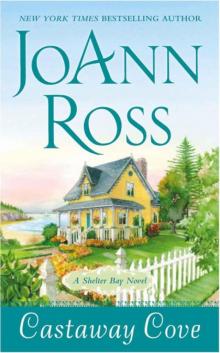 Castaway Cove
Castaway Cove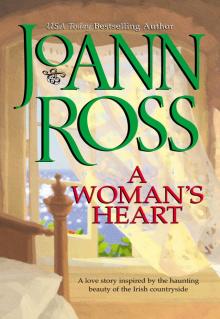 A Woman's Heart
A Woman's Heart One Summer
One Summer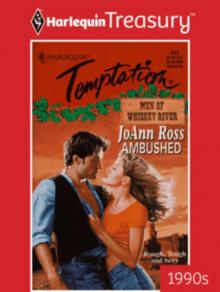 Ambushed
Ambushed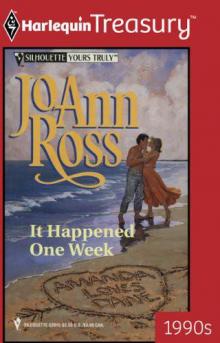 It Happened One Week
It Happened One Week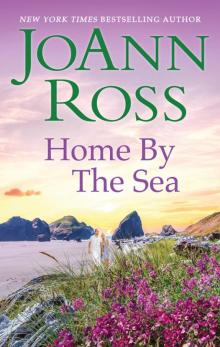 Home by the Sea
Home by the Sea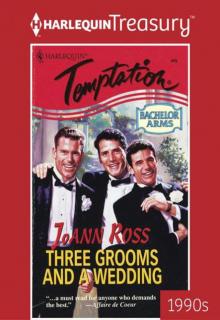 Three Grooms and a Wedding
Three Grooms and a Wedding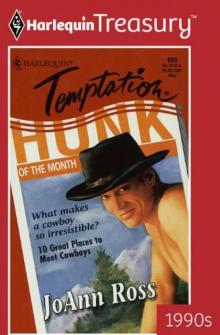 Hunk of the Month
Hunk of the Month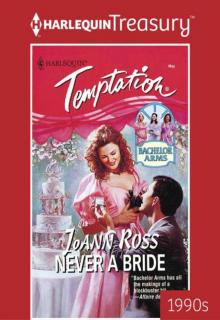 Never a Bride
Never a Bride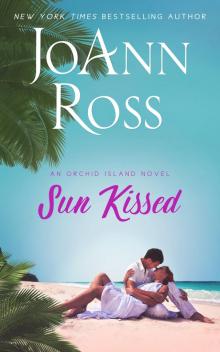 Sun Kissed
Sun Kissed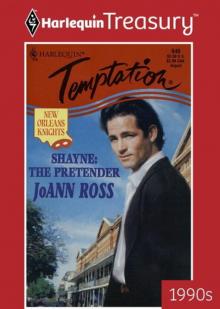 Shayne: The Pretender
Shayne: The Pretender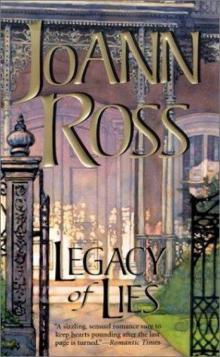 Legacy of Lies
Legacy of Lies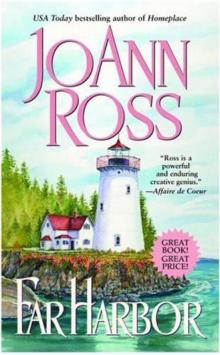 Far Harbor
Far Harbor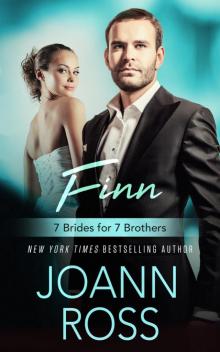 Finn
Finn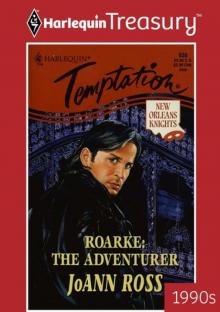 Roarke: The Adventurer
Roarke: The Adventurer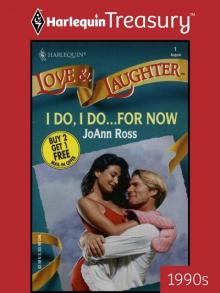 I Do, I Do...For Now (Harlequin Love and Laugher)
I Do, I Do...For Now (Harlequin Love and Laugher)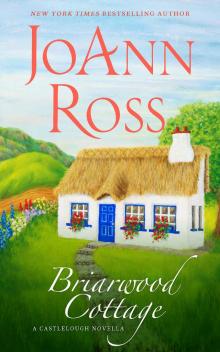 Briarwood Cottage
Briarwood Cottage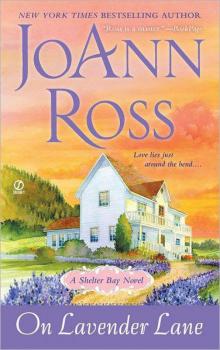 On Lavender Lane
On Lavender Lane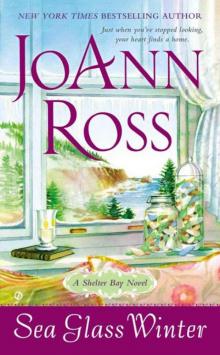 Sea Glass Winter
Sea Glass Winter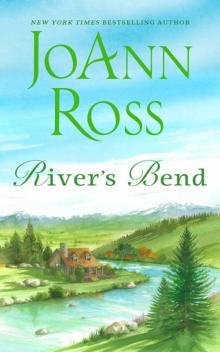 River's Bend
River's Bend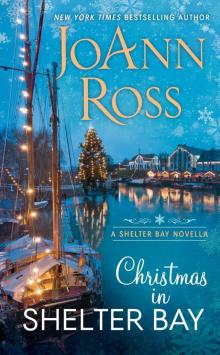 Christmas in Shelter Bay
Christmas in Shelter Bay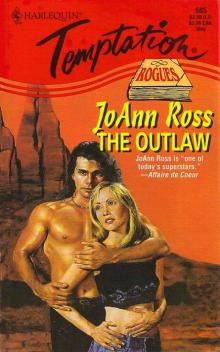 The Outlaw
The Outlaw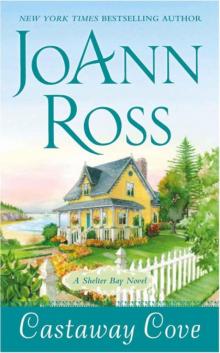 Castaway Cove (2013)
Castaway Cove (2013)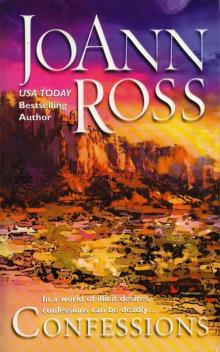 Confessions
Confessions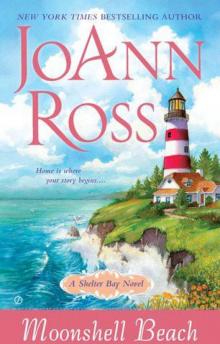 Moonshell Beach: A Shelter Bay Novel
Moonshell Beach: A Shelter Bay Novel